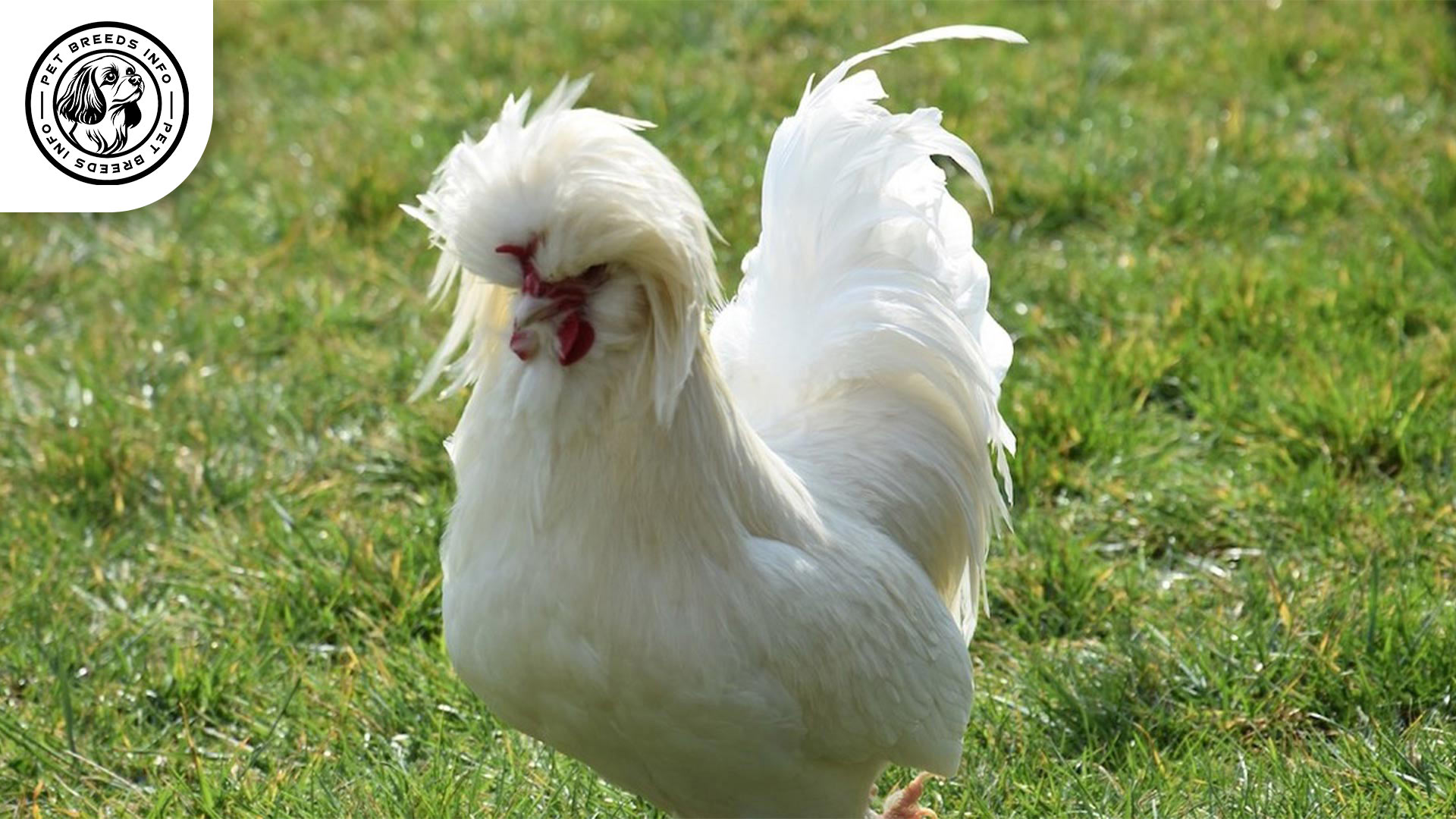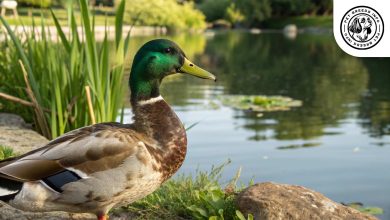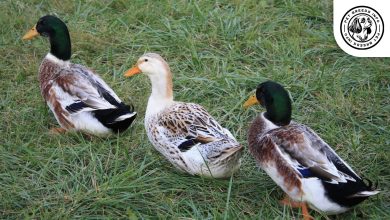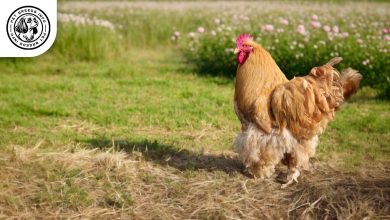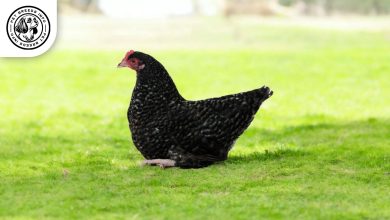Sultan Chicken Breed: Personality, Lifespan, Food & Care
General Introduction of the Breed
The Sultan Chicken, known as “Serai Tavuk” in Turkish, is a rare ornamental chicken breed that originated in Turkey. It is sometimes referred to simply as the “Sultan Fowl.” The breed dates back centuries and was kept primarily in the gardens of Ottoman sultans, hence its name. It was introduced to Europe in the 19th century and later brought to the United States.
Table of Contents
| Common Name | Sultan Chicken, Sultan Fowl |
| Scientific Name | Not provided in the text |
| Origin | Turkey |
| Size | Small to medium |
| Lifespan | 5 to 8 years |
| Talking Ability | Not applicable (chickens do not talk) |
| Colors | Primarily white, blue and black varieties exist |
| Noise Level | Not explicitly mentioned, but described as calm |
| Social Behavior | Calm, friendly, docile, enjoys human interaction, gets along well with children and non-aggressive pets |
Physical Characteristics
Sultan Chickens are small to medium-sized birds with a compact body. Males typically weigh around 6 pounds (2.7 kg), while females are slightly lighter at about 4 pounds (1.8 kg).
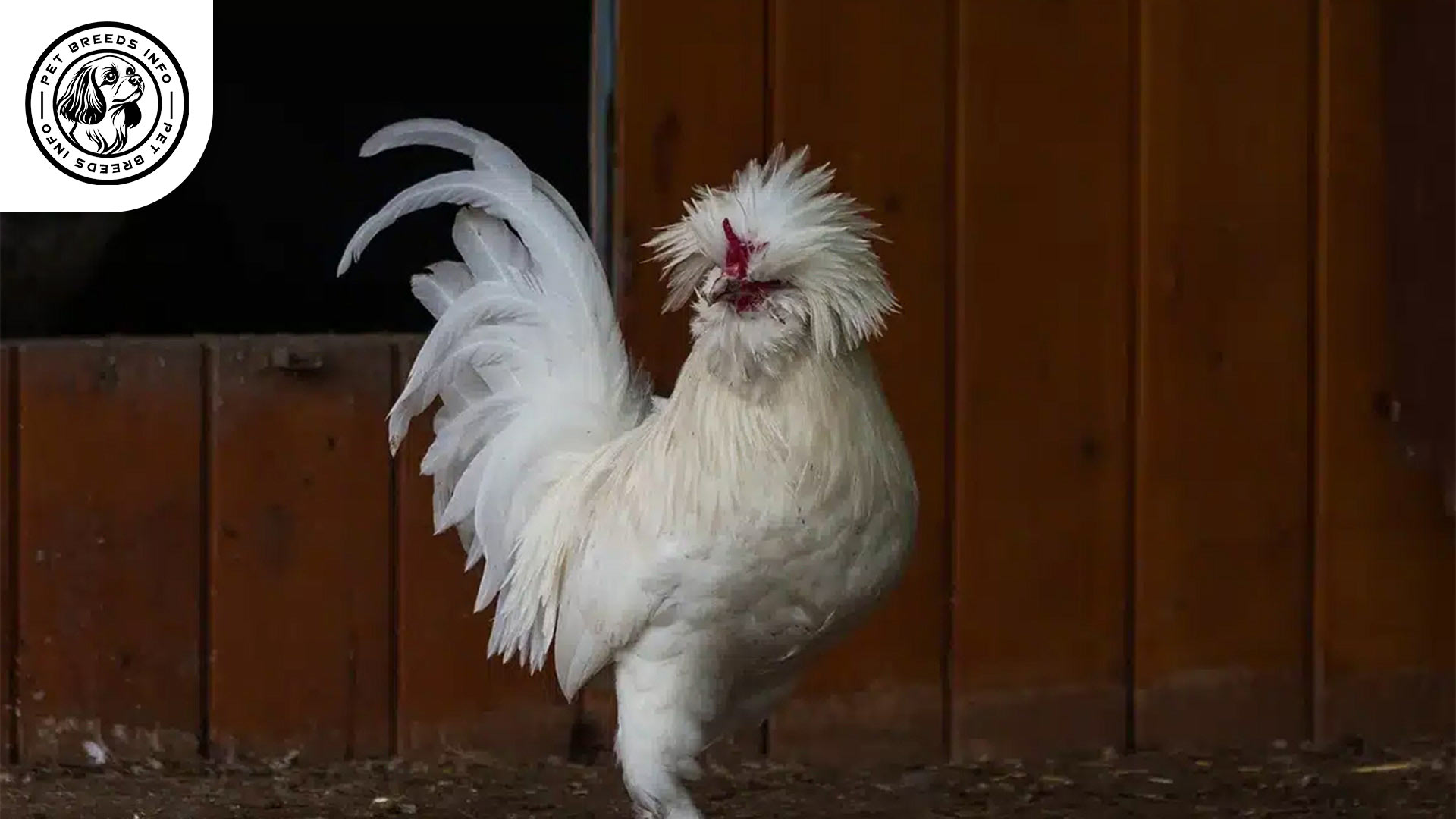
They have an extravagant appearance with a full crest of feathers on their head, feathered legs, and long tails. The breed primarily appears in white, though blue and black varieties also exist. Their eyes are dark and expressive, giving them a distinctive look. The comb is V-shaped, and their ears, wattles, and face are often hidden beneath their thick plumage.
Read More: Silver Appleyard Duck
Personality and Temperament
Sultan Chickens are known for their calm and friendly temperament. They are highly docile and enjoy human interaction, making them great pets. They are not particularly active or flighty but prefer a relaxed environment. Unlike some breeds with strong foraging instincts, Sultans are more content in controlled spaces. Their sensitive nature means they may not tolerate harsh environmental changes well.
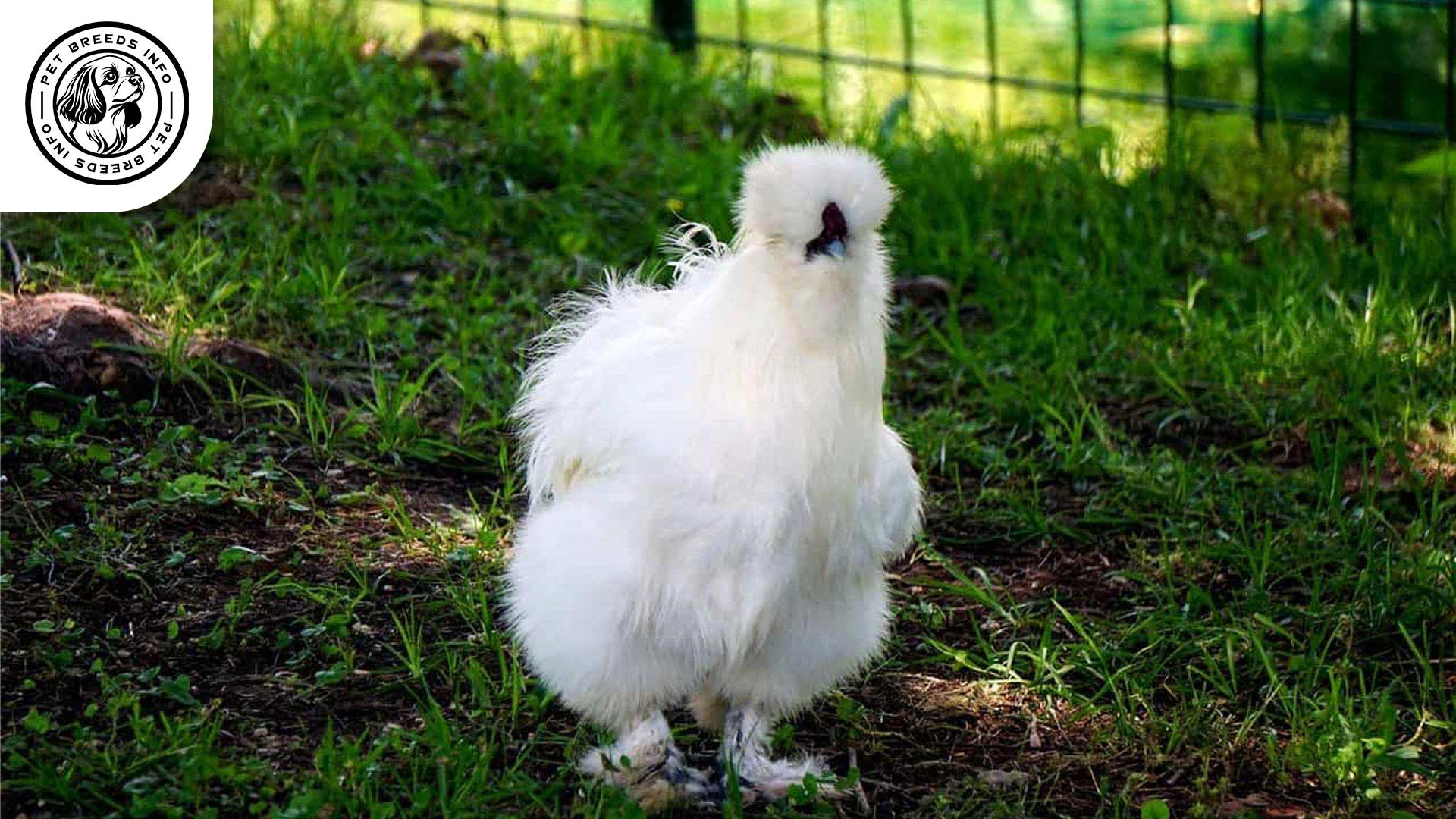
Care and Maintenance Requirements
Due to their feathered feet and delicate nature, Sultan Chickens require careful maintenance. They are best suited for enclosed or semi-covered spaces to protect their plumage. Regular grooming, including trimming foot feathers to prevent dirt buildup, is necessary. Their crest should also be checked frequently for mites or parasites. They do not tolerate extreme cold or wet conditions well, so a dry and well-insulated coop is essential. Basic hygiene, such as nail trimming and occasional baths, helps keep them healthy.
Diet and Nutrition
Sultan Chickens thrive on a balanced diet of high-quality poultry feed, supplemented with grains, vegetables, and occasional protein sources like mealworms. Because they are less active than other breeds, portion control is necessary to prevent obesity. Foods to avoid include chocolate, onions, avocados, and excessively salty or processed foods. Fresh water should always be available.
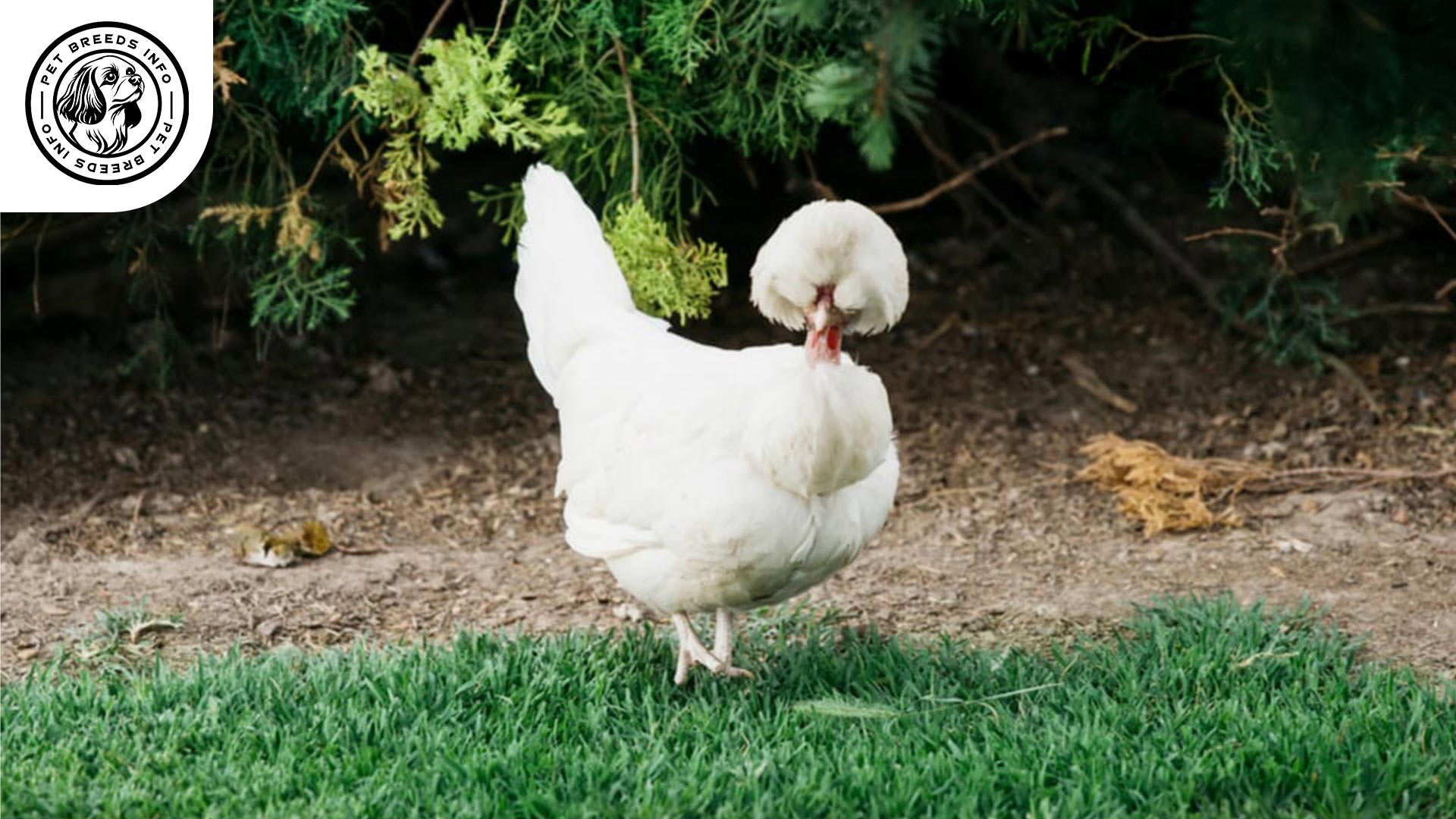
Health and Common Medical Issues
Sultans are generally healthy but are prone to issues common in ornamental breeds, such as respiratory infections, mite infestations, and foot injuries due to their feathered legs. Regular health checkups, proper nutrition, and a clean environment help minimize risks. Their average lifespan is around 5 to 8 years. Vaccinations against common poultry diseases, such as Marek’s disease and fowl pox, are recommended.
Read More: Silkie Chicken
Training and Behavior Management
Training a Sultan Chicken is relatively easy due to its friendly disposition. They can be taught to recognize their owners and respond to gentle handling. Positive reinforcement, such as food rewards, can be used to encourage social behavior. Early exposure to human interaction is important for developing a trusting temperament. Since they are not aggressive, disciplinary measures should focus on reinforcing safe and calm behaviors.
Interaction with Other Animals and Humans
Sultan Chickens are excellent for families due to their gentle and affectionate nature. They get along well with children and other non-aggressive pets. Unlike some chickens that may exhibit territorial behavior, Sultans are generally peaceful and integrate well into flocks with similar breeds. However, they may be bullied by more dominant chicken breeds, so a controlled environment with compatible companions is ideal.
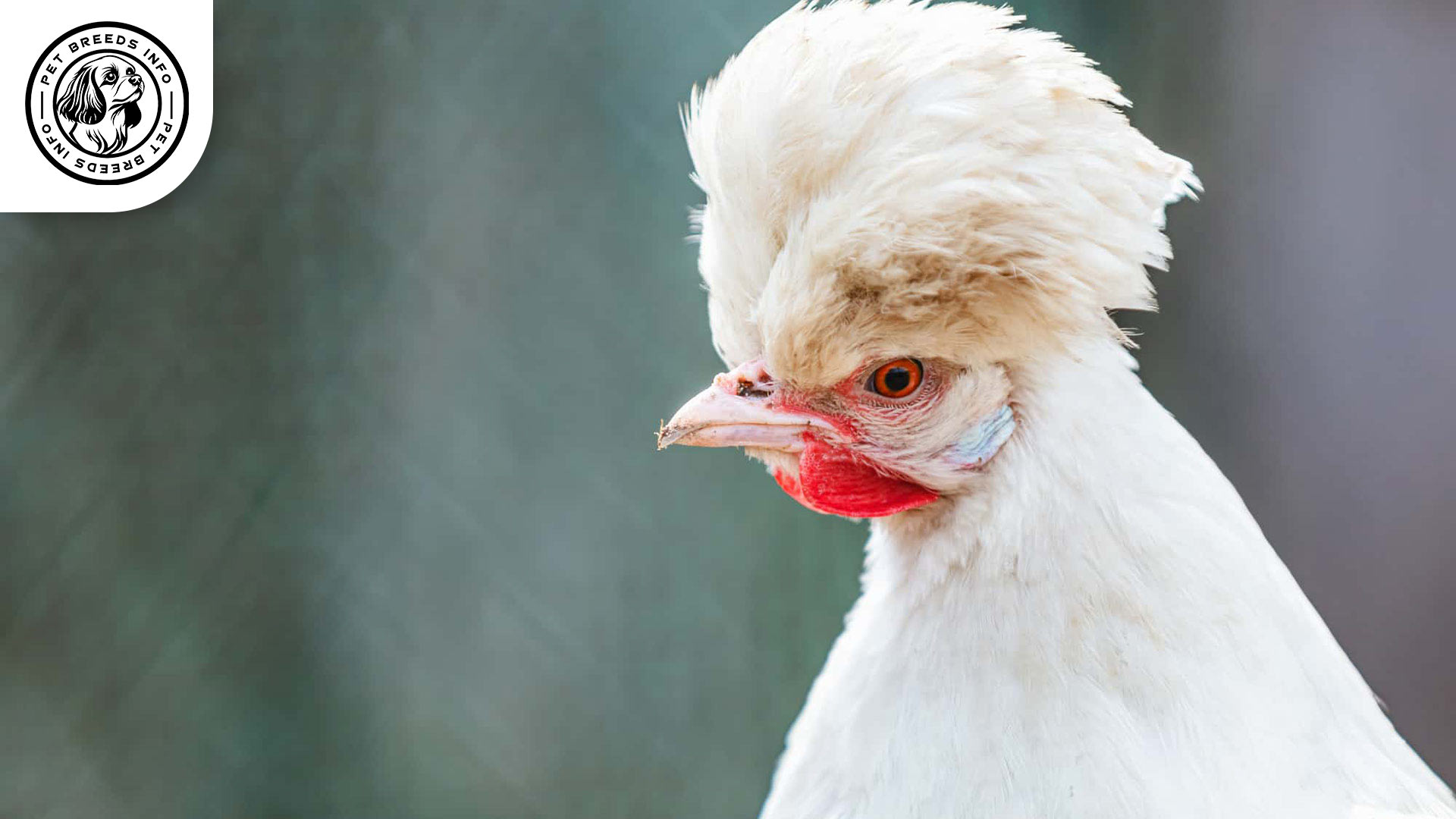
Price and Availability
Sultan Chickens are considered a rare and ornamental breed, making them slightly more expensive than common backyard chickens. Prices typically range from $10 to $50 per chick depending on quality and breeder reputation. When purchasing, it is best to seek reputable breeders or specialized poultry farms to ensure the health and purity of the breed. Some hatcheries and online platforms also offer Sultan Chickens for sale.
Conclusion and Final Thoughts
The Sultan Chicken is an excellent choice for poultry enthusiasts looking for an ornamental, friendly, and manageable breed. Due to their delicate nature, they are better suited for owners who can provide a controlled and clean environment. They make perfect pets for families or individuals who appreciate their unique beauty and calm temperament. Potential owners should consider their grooming needs and susceptibility to damp conditions before committing to raising this breed.
Read More: Dorking Chicken
FAQ
What is a Sultan Chicken known for?
Sultan Chickens are known for their extravagant feathered appearance, calm temperament, and history as an ornamental breed.
Are Sultan Chickens good pets?
Yes, they are highly docile and enjoy human interaction, making them great pets.
What special care do Sultan Chickens need?
They require regular grooming of their feathered feet and crest, and a dry, well-insulated coop to protect them from damp conditions.
How big do Sultan Chickens get?
Males typically weigh around 6 pounds (2.7 kg), and females around 4 pounds (1.8 kg).
How long do Sultan Chickens live?
Their average lifespan is around 5 to 8 years.
